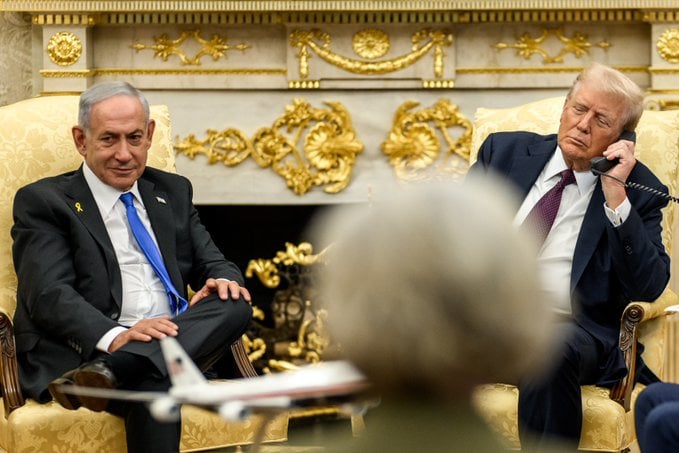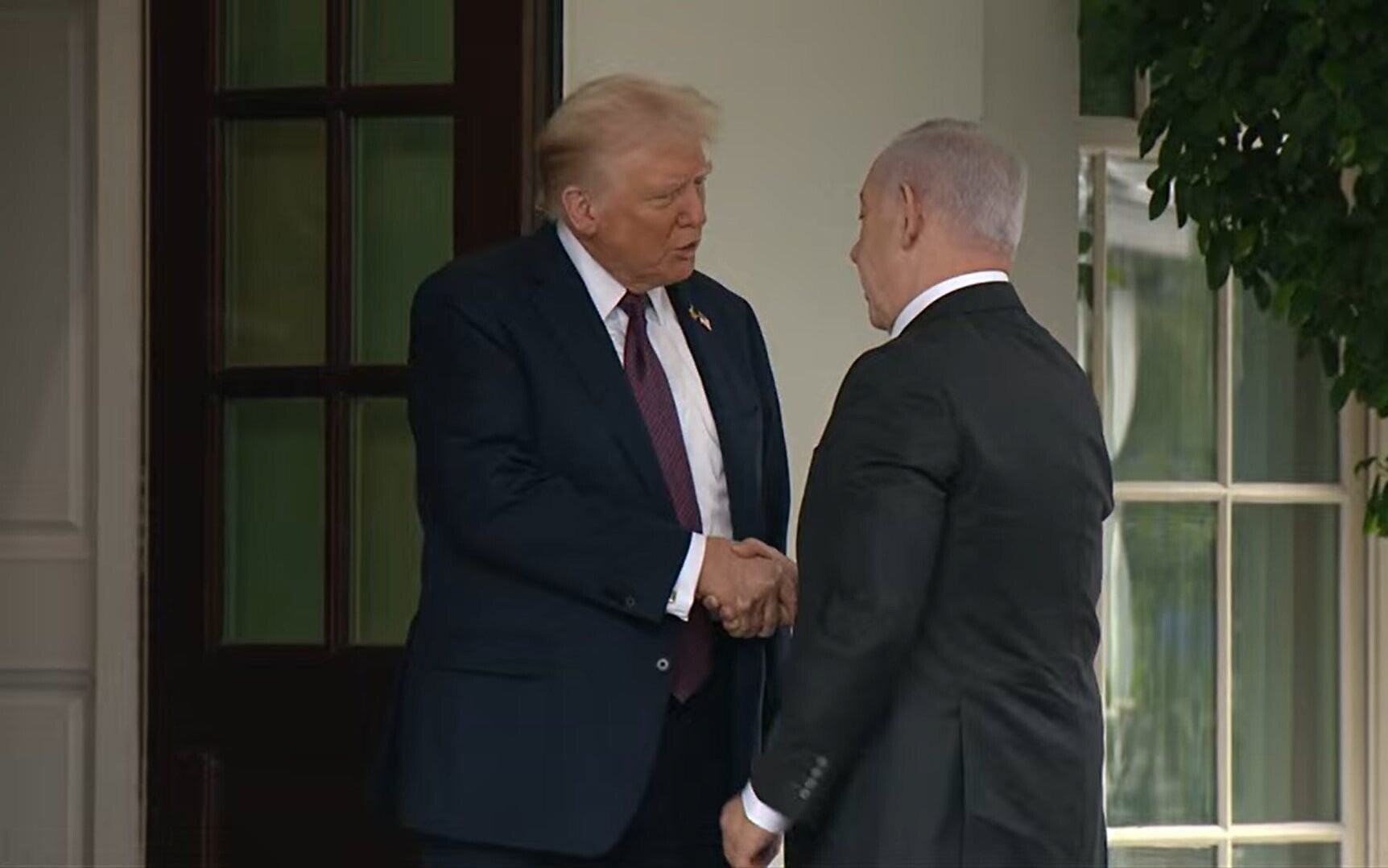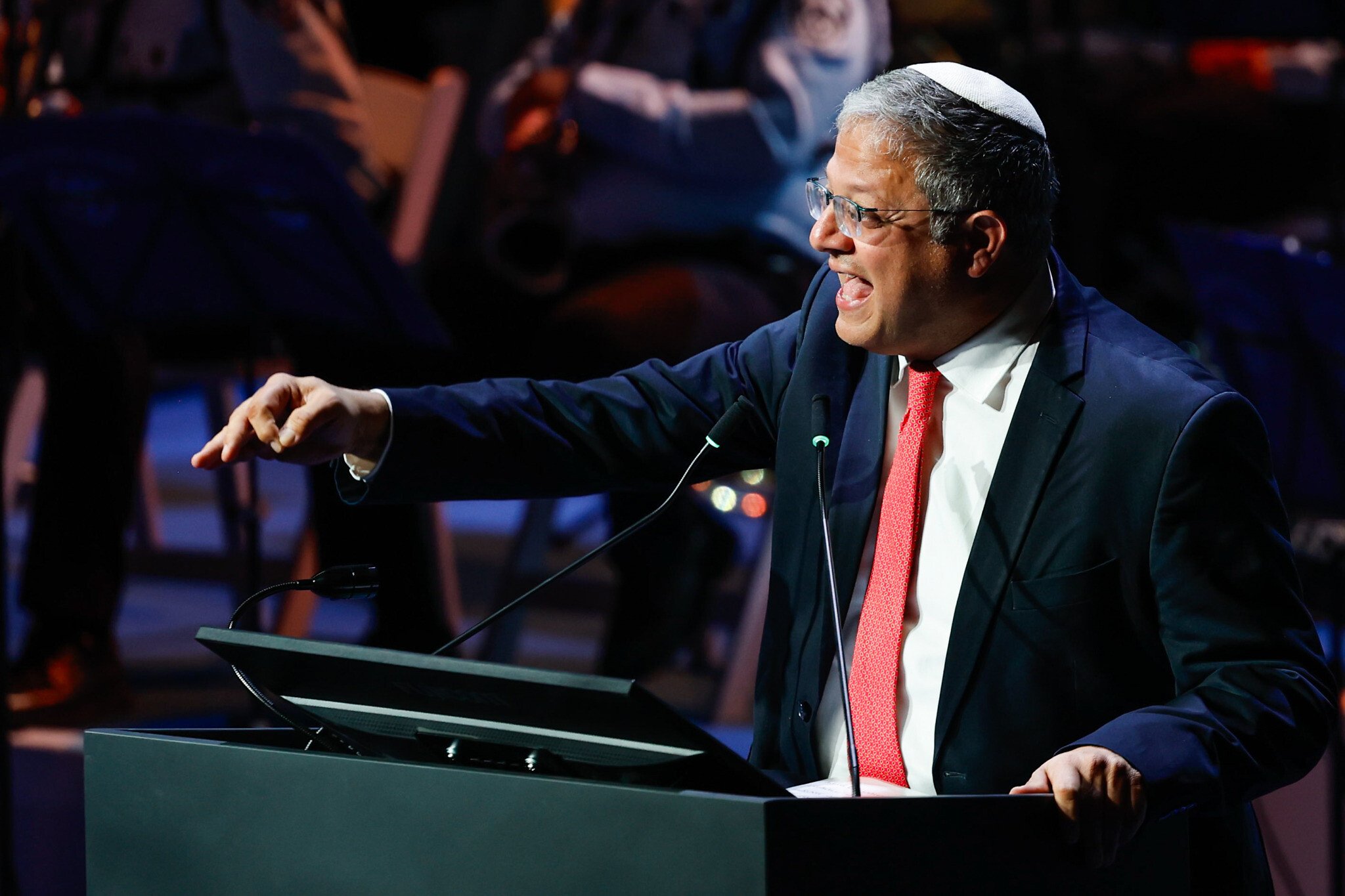


Prime Minister Benjamin Netanyahu on Monday apologized to his Qatari counterpart, Mohammed bin Abdulrahman bin Jassim al-Thani, for the Israeli strike in Qatar on September 9, which targeted a meeting of the Hamas terror group’s political leadership.
Though the strike failed to kill the key Hamas leaders it was targeting, it did kill several lower-level members in the terror group, along with one Qatari guard. Following the attack, Qatar — which had until then played a key role in negotiations between Israel and Hamas amid the ongoing war in Gaza — refused to serve as a mediator.
The apology took place in a phone call made from the Oval Office that US President Donald Trump organized and was present for, during a meeting between him and Netanyahu. Shortly after the phone call, the White House released its plan for ending the war. Trump, at a press conference, then said Israel and the Arab world had accepted it.
During the call, Netanyahu “expressed his deep regret that Israel’s missile strike against Hamas targets in Qatar unintentionally killed a Qatari serviceman,” an official White House readout said.
The Israeli premier “further expressed regret that, in targeting Hamas leadership during hostage negotiations, Israel violated Qatari sovereignty and affirmed that Israel will not conduct such an attack again in the future,” it continued.
During the call, the Qatari premier “welcomed these assurances, emphasizing Qatar’s readiness to continue contributing meaningfully to regional security and stability,” the US readout said, noting that Netanyahu “expressed commitment to the same.”
A Qatari statement, issued shortly thereafter, confirmed the call and said that Thani expressed Qatar’s refusal to tolerate violations of its sovereignty, while conveying Doha’s readiness to continue its involvement in efforts to end the war in the Gaza Strip under the framework of the US president’s initiative.
Netanyahu’s concession marked an about-face from previous, repeated insistence by the premier that Jerusalem was within its rights to strike the Hamas leaders, including in the Qatari capital,.
As recently as Sunday, speaking to Fox News, Netanyahu compared the strike in Doha to the US operation in Pakistan that killed Osama Bin Laden, adding that “any self-respecting country doesn’t give a pass to terrorists.”
Netanyahu and Qatar’s Thani discussed this effort during the phone call, the White House said. The Gulf state, which has long hosted Hamas’s political leaders, has close links to the terror group.
The US’s plan, as presented in a White House statement Monday with the Trump-Netanyahu meeting ongoing, would see all hostages, living and dead, returned within 72 hours of Israel’s public acceptance of the deal; it would also see Hamas disarmed, and Gaza demilitarized and put in the control of an “international transitional body,” with the aim of eventually handing it to a reformed Palestinian Authority.
After news broke of Netanyahu’s apology, National Security Minister Itamar Ben Gvir took to social media, calling the September 9 strike in Doha “important, just, and supremely moral.”
Calling Qatar “an enemy state,” the far-right minister said that “whoever sends monsters to burn babies, rape women, and abduct elderly women must know that there is no place in the world where he is safe.”
“It is time to tell the world the truth: Qatar is a state that supports terrorism, funds terrorism, and incites terrorism,” he continued. “No money will cleanse the terrorism from their hands.”
Finance Minister Bezalel Smotrich compared the apology to the Munich Agreement of 1938 between Nazi Germany and Great Britain, France, and Italy. The agreement was signed exactly 87 years ago on Tuesday.
“Then as now, the words of Churchill resound: ‘England can choose between disgrace or war; it has chosen disgrace, and therefore it will receive war, too,'” Smotrich wrote. The quotation, often attributed to Churchill’s private correspondence, does not have a clear source.
“This prostrate apology to a state that supports and funds terror is a disgrace,” he added.
There are precedents, however, for Israel apologizing to other states. Netanyahu himself apologized both to Turkey “for any errors that could have led to loss of life” in the May 2010 Mavi Marmara incident, and to Jordan for the assassination attempt on Hamas official Khaled Mashaal on Jordanian soil in 1997.
Nurit Yohanan contributed to this report.




